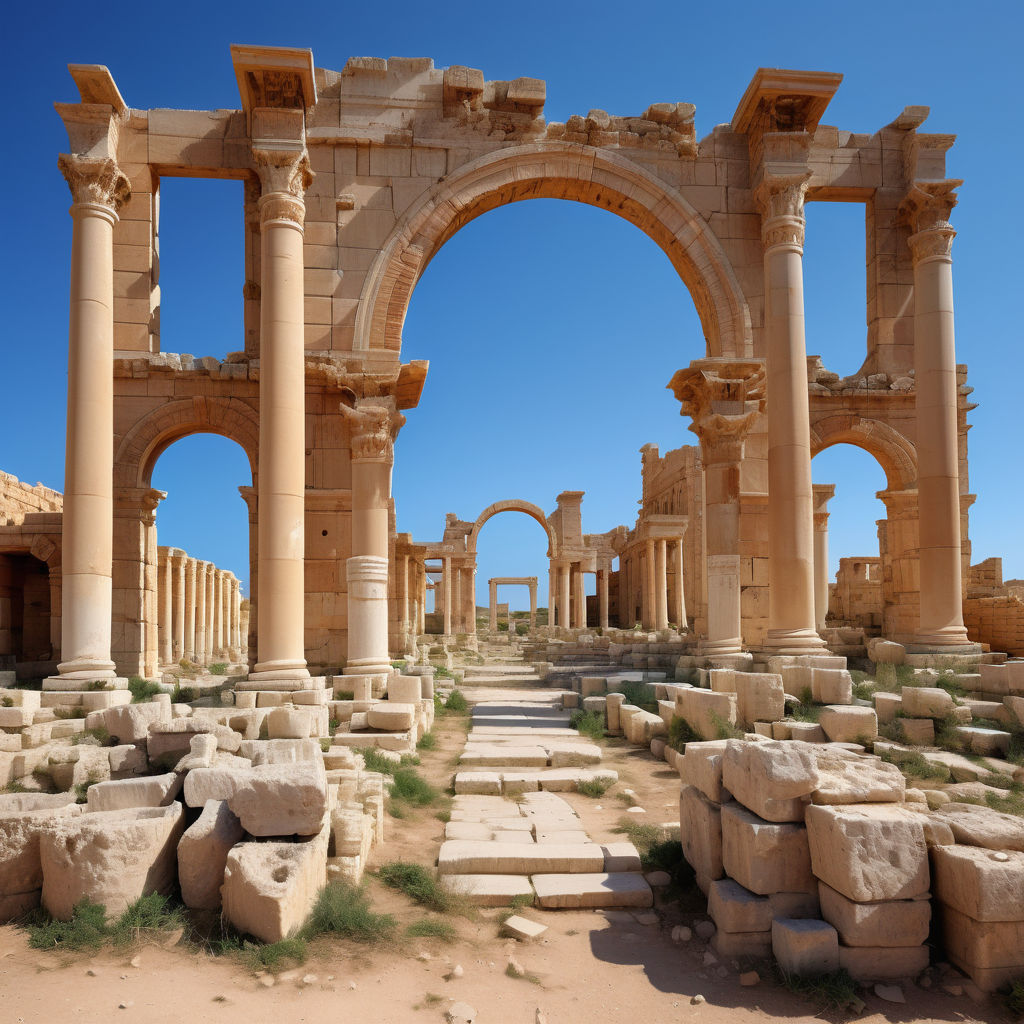Introduction to Libya: Culture, Heritage, and Cross-cultural Engagement
Explore Libya's Rich Cultural Heritage and Cross-cultural Dynamics

Introduction to Libya
Libya, officially known as the State of Libya, is a North African country bordered by the Mediterranean Sea to the north, Egypt to the east, Sudan to the southeast, Chad and Niger to the south, and Algeria and Tunisia to the west. The capital city, Tripoli, is the largest city and serves as the political, economic, and cultural hub of the nation. Other major cities include Benghazi, Misrata, and Sabha. Libya has a rich cultural heritage that reflects its diverse history, including influences from Berber, Arab, and Mediterranean civilizations. The country is known for its ancient ruins, such as those in Leptis Magna and Cyrene, which are UNESCO World Heritage Sites. Libyan culture is also characterized by its traditional music, dance, and crafts. The cuisine, featuring dishes like couscous, bazin (a type of unleavened bread), and harissa (a hot chili pepper paste), reflects the country's agricultural roots and Mediterranean influences.
Cross-national and Cross-cultural Understanding
Libyans generally perceive and engage with other cultures with a mix of curiosity and caution, influenced by the country's history, political landscape, and interactions with foreign powers. However, there is a growing recognition of the importance of cross-cultural understanding, and various efforts are made to promote it. Cultural exchanges play a significant role in fostering cross-cultural understanding in Libya. The country hosts festivals and events that celebrate both local and international traditions. For example, the Mediterranean Festival in Tripoli attracts artists and audiences from around the world, promoting cultural exchange through music, dance, and art. Additionally, Libya’s participation in regional organizations such as the African Union (AU) and the Arab League facilitates cultural and educational exchanges. Educational programs in Libya emphasize global awareness and cross-cultural understanding. Schools and universities incorporate multicultural perspectives into their curricula, encouraging students to appreciate and respect diversity. The University of Tripoli and other higher education institutions collaborate with international partners to facilitate student and faculty exchanges, enriching the educational experience and fostering global connections.
Interactions and Social Dynamics
Typical interactions between Libyans and foreigners are characterized by hospitality, respect, and a strong sense of community. Social behaviors in Libya reflect a blend of traditional customs and contemporary influences, emphasizing respect for others, politeness, and communal living. Communication styles in Libya are generally formal but friendly. Arabic is the official language, but English and Italian are also spoken, especially in urban areas and among the educated population. This multilingualism facilitates interactions with tourists and expatriates, making it easier for them to integrate into the local community. Cultural norms in Libya place a strong emphasis on respect for elders, family values, and community involvement. These norms create a welcoming and inclusive atmosphere for foreigners, who often find it easy to adapt to the local way of life. Public displays of affection are generally modest, reflecting the country’s traditional values, but social gatherings and communal activities are vibrant and inclusive.
Views on Dating and Relationships
Attitudes towards dating and relationships with foreigners in Libya are generally open but influenced by cultural and traditional norms. Libyans recognize the opportunities for cultural exchange and personal growth that such relationships can bring. However, traditional customs and values play a significant role in shaping these views. Family involvement is significant in relationships in Libya, with elders often playing a crucial role in the approval process. Traditional customs emphasize respect, patience, and the gradual building of trust in relationships. While modern dating practices influenced by global trends are becoming more common among younger generations, traditional values still hold sway in many communities.
Marriage and Family
Marrying a foreigner in Libya involves navigating both legal and social considerations. Legally, the country has clear regulations governing marriage, including residency requirements and the need for proper documentation. Socially, cross-cultural marriages are generally accepted, though couples may face challenges related to cultural differences and integration. Familial acceptance is a key factor in cross-cultural marriages. Libyan families can be protective, and gaining their approval is often essential for the relationship's success. However, the diverse cultural landscape of Libya means that many families are already familiar with and accepting of different cultural backgrounds, which can facilitate smoother integration for foreign spouses. Trends in cross-cultural marriages reflect Libya’s open and inclusive society. Many Libyans who travel abroad for education or work form relationships with individuals from various cultures, bringing back diverse customs and traditions that enrich the local community.